Barda IS — a look at Ngozi Ukazu’s new comic book BARDA.
It’s a meet-cute story set in the torture dungeons of Darkseid's Apokolips.
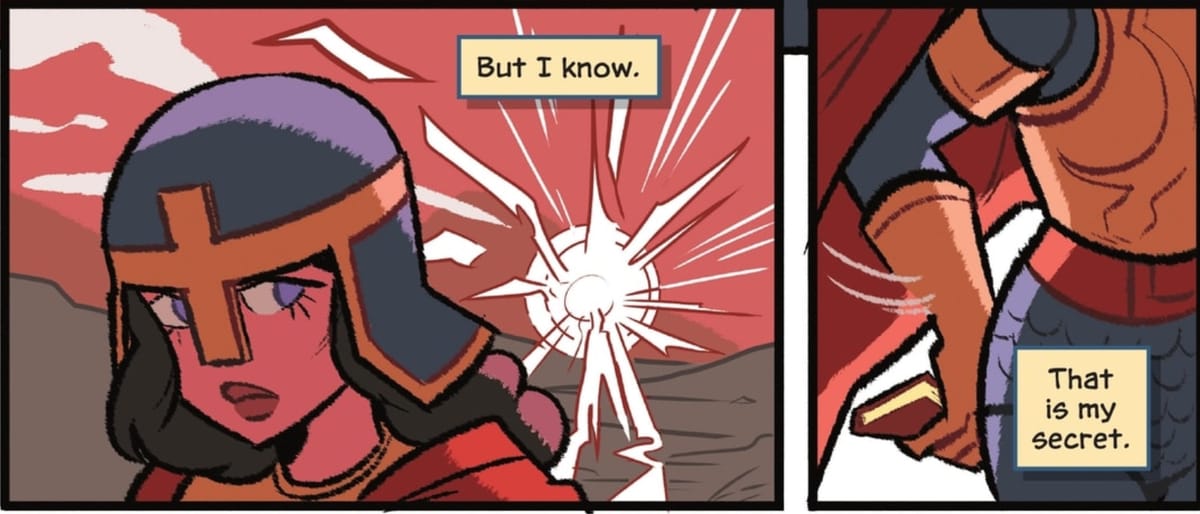
When it comes to Jack Kirby’s Fourth World, we usually see these stories from the perspective of Orion and Mister Miracle, the sons of the gods. Kirby’s New Gods is largely the story of these two boys, exchanged when they were young to live on the other’s planet, under the watchful eye of the other’s father— Orion on New Genesis and Scott Free on Apokolips. The Fourth World story is largely about how these two men remain true to their natures while also finding a path that’s different from their biological and adopted fathers. Around these two men, Kirby imagined much bigger worlds occupied by other gods and demons to support Orion and Scott’s stories. In the fourth issue of Mister Miracle, Kirby introduced Big Barda, a giant warrior woman from Apokolips, into Scott Free’s world. Barda would go on to become Scott’s wife, a marriage of New Genesis and Apokolips, and their marriage would be one of the greatest and most stable ones in superhero comics. In Ngozi Ukazu’s (Check, Please!) new book Barda, Ukazu returns to the beginning of that relationship, staying true to Kirby’s original text. But by shifting the story from Scott Free’s story to Barda’s story, Ukazu turns this familiar story into something new and exciting. By giving Barda her own agency, Ukazu makes this a heartfelt story about a young woman trying to find her way instead of just following the paths of her elders.
Orion and Scott are characters of fate and destiny. That’s how Kirby framed them and what nearly every writer from Steve Englehart to Tom King has stuck with. Barda was neither; she was there to be the companion and wife. As much as the men had legacies to live up to, Barda’s was “big” and she was a warrior. In some ways, that was all she was— filling an important role in Scott’s story. That doesn’t mean that she hasn’t grabbed people's imagination as much as it means that she’s never really had her own story In the opening pages of Barda, we get a very different and almost unsettling view of Barda as a young woman infatuated with Orion, not Scott Free. Meeting Orion on the battlefields, Barda narrates, “We do not speak of love on Apokolips.” That’s the first line of the book and pretty much tells you what you need to know going into this book. They “do not speak of love” yet Barda knows what it is enough to think about it and to think that maybe she’s in love with her battlefield rival, Orion. She practically has a school-girl crush on the Big Man on Campus and is trying to show him that she’s as tough as he is.
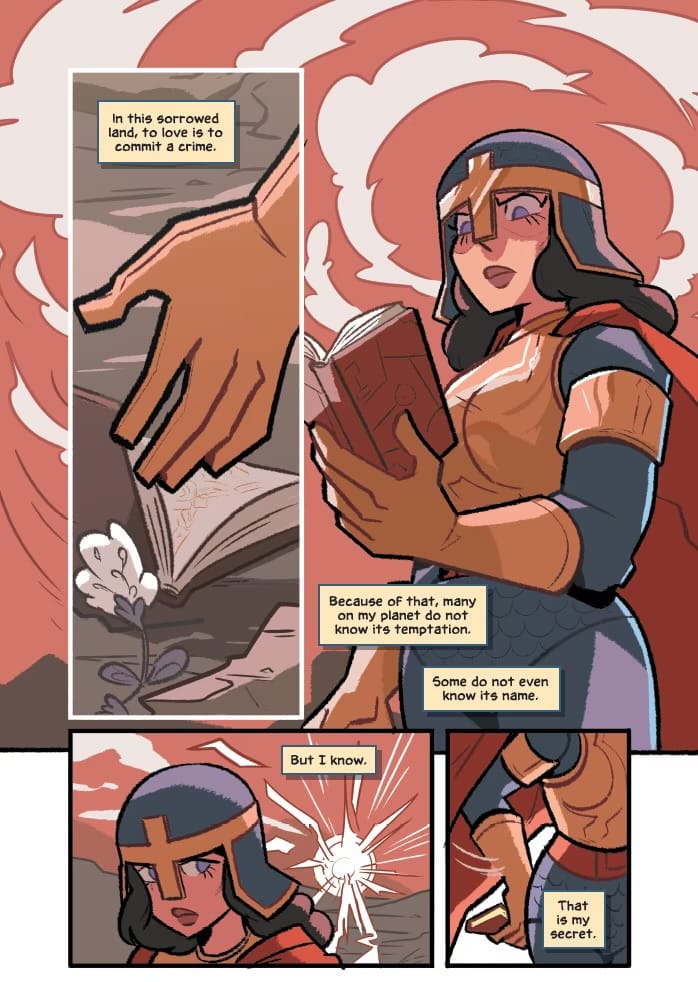
Ukazu’s reimagining of the story around Barda makes it something different than Kirby’s story. Ukazu starts with Kirby’s basic story engine but by shifting the focus to Barda, she makes this epic story a smaller and more personal one. She doesn’t take anything away from Kirby but she adds to the Fourth World story. By being additive, the story of Barda and Scott Free’s initial encounters becomes much more emotionally gripping. Barda is assigned by Granny Goodness to be Scott’s jailer and torturer. That’s Granny trying to establish her dominance over both of these young people who are trapped in her grip. A lot of that is present in Kirby’s original story. The difference here is that by seeing it from Barda’s point of view, Ukazu makes this a story about people finding themselves and discovering who they are more than people trying to avoid a destiny set for them.
That largely stems from Ukazu treating Barda as a person, with wants, fears, and needs of her own. She isn’t here to serve someone else’s story but to be in her own story. Barda is much more than Scott Free’s future wife or a warrior in this book. She’s actually on a path of self-actualization under Ukazu’s pen, growing into who she is. If Scott Free is a character of destiny (and Ukazu hints at that in her book,) Barda is a character who’s discovering that she has free will and what that means. For as great as free will is, it’s accompanied by pain, doubt, and mistakes. Barda could just be the good little soldier, a slave doing what Darkseid and Granny Goodness tell her to do; that’s the life her fellow Furies lead- the good little soldiers never questioning orders no matter how horrible and atrocious they may be. But Barda’s different; she longs and questions.
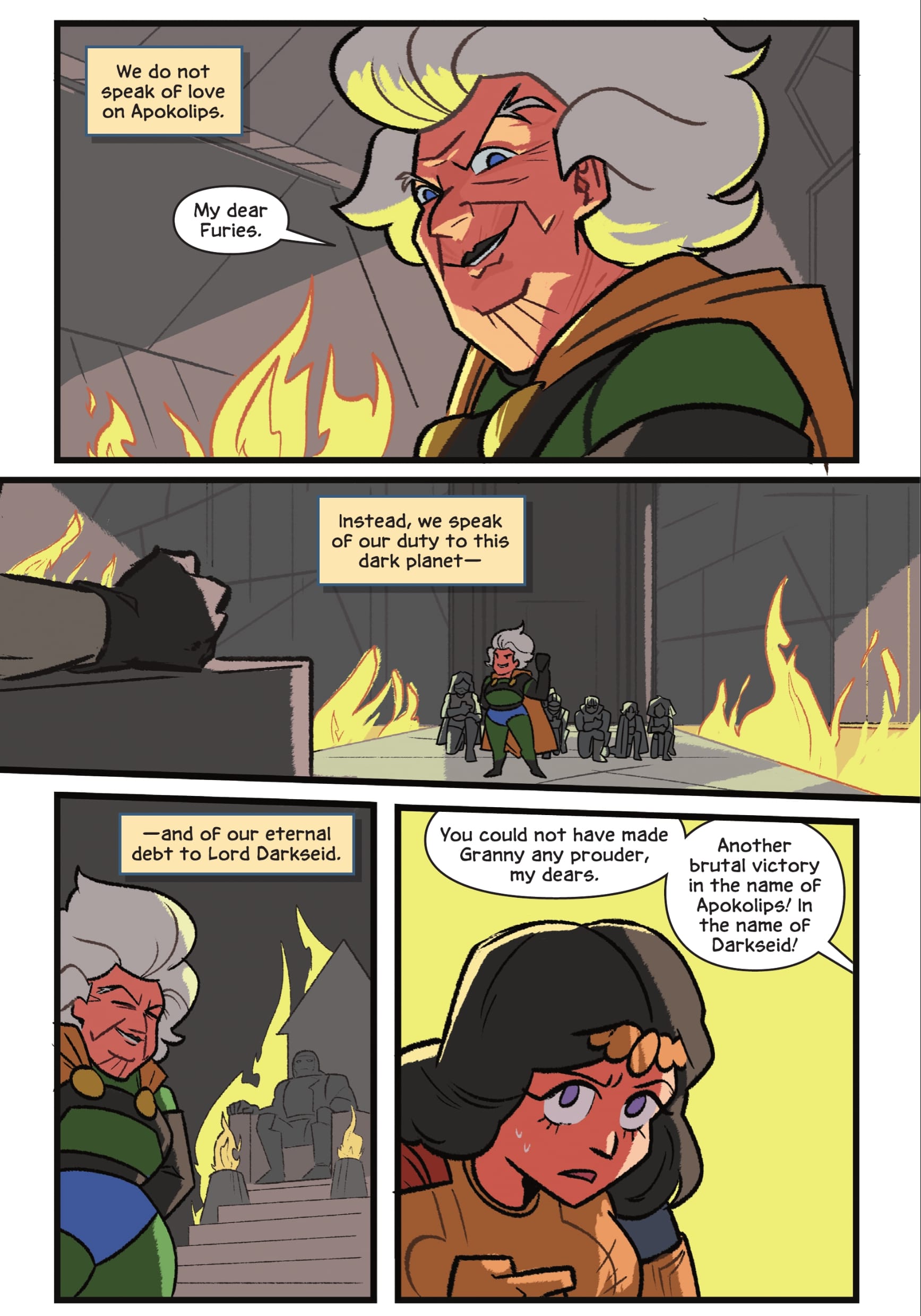
The artwork portrays an innocence in this story that’s hidden beneath the exterior of Apokolips. Ukazu’s body language shows us the many sides of Barda that play against the setting and the legend of Darkseid’s domain. She’s a complex character going through these different experiences that are forcing her to explore what she’s been taught about who she is. Ukazu mostly shows Barda moving through all of these stages and emotions— this is a woman falling in love while also questioning everything she was trained to believe. She’s at this crossroads of being extremely tough physically but also very vulnerable emotionally in ways that no one else in this book is experiencing. In that way, she’s very alone; there’s no one that she can go to except for this boy whom she sees is also alone in an actual prison cell.
The only other character who comes close to experiencing Apokolips in similar ways that Barda does is Auralie, a minor character who catalyzed Scott’s escape from Apokolips in Kirby’s story. In this story, she’s friends with Barda, someone for Barda to protect from being changed by the world around her. But Barda fails in that and ultimately, Auralie’s fate drives Barda’s rebellion. Auralie’s still the catalyst to everything that happens but she means something more personal and integral to Barda’s story here than she has ever been before. Even though she’s one of the Furies with Barda, Auralie represents a different way to live that Barda doesn’t understand but longs for. As Barda’s great failure, Auralie becomes the tragedy that drives Barda to act on her initiative for the first time.
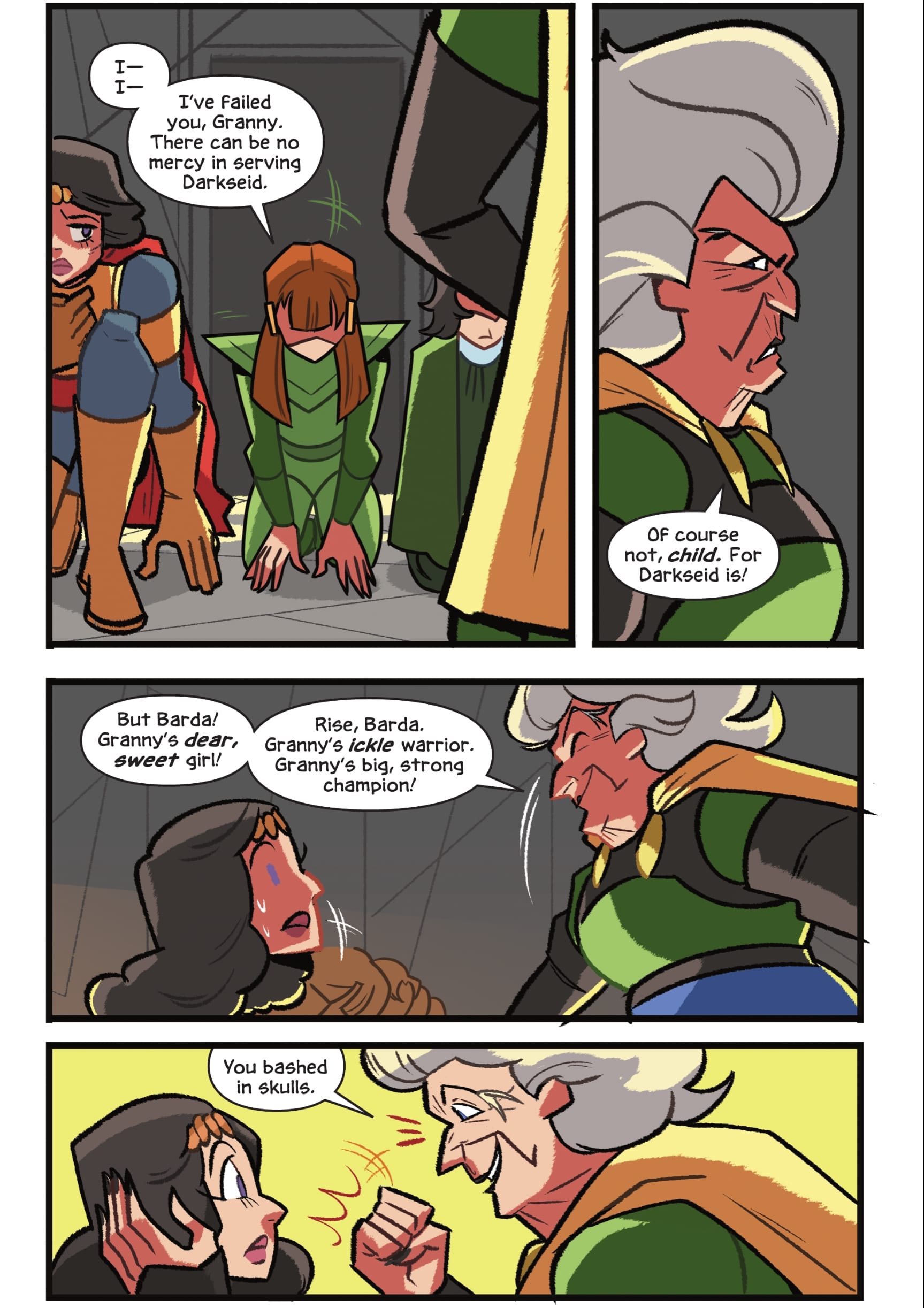
“Darkseid is.” It’s one of Grant Morrison’s greatest lines that Ukazu echoes here. This idea that Darkseid is everything provides his minions a freedom from self-determination but it traps them in him. If he is everything, then everything is a part of him even as he’s so much more than the sum of the parts. That’s the great lie that Barda believes. Darkseid is. That’s it. That’s all there is to this life. Ukazu’s Barda shows us that there’s more, so much more like friendship and love. “We do not speak of love on Apokolips” but that’s exactly what Barda is discovering in this book- love. Barda is this young woman who is so full of love even if she doesn’t know it. By using Jack Kirby’s original stories as her template, Ngozi Ukazu pulls these feelings and emotions out of the characters in ways that they haven’t been displayed before. The story of Scott Free and Big Barda has always been a love story but Ukazu shows us just how love grows and thrives in this harsh world.
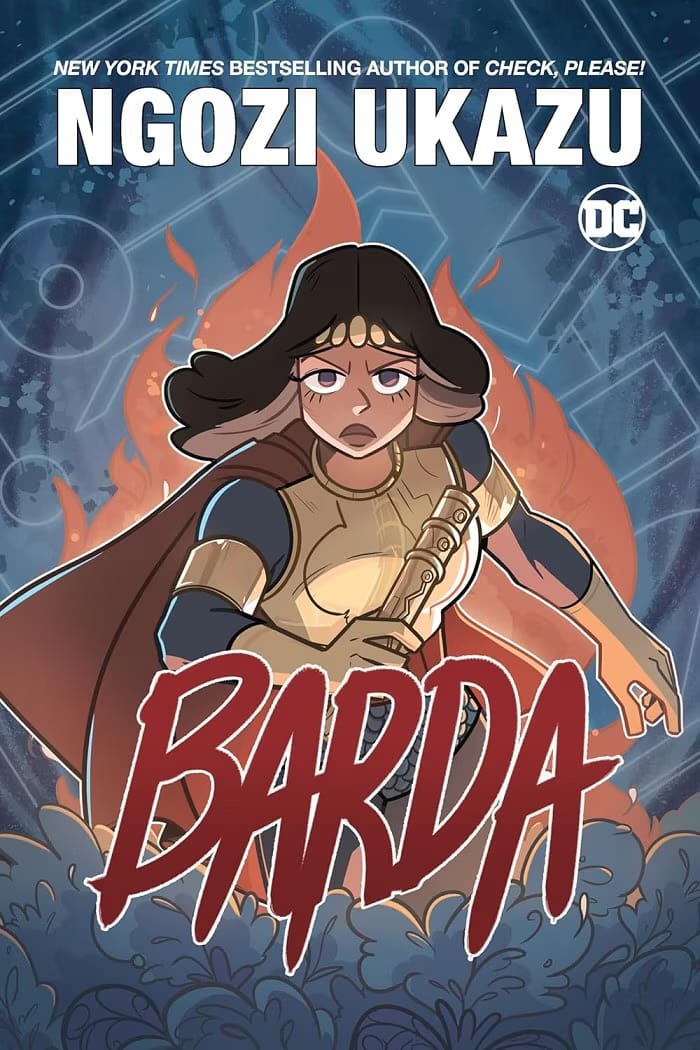



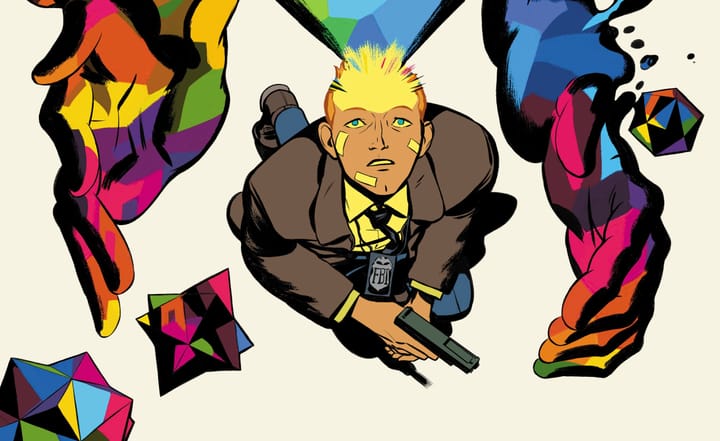
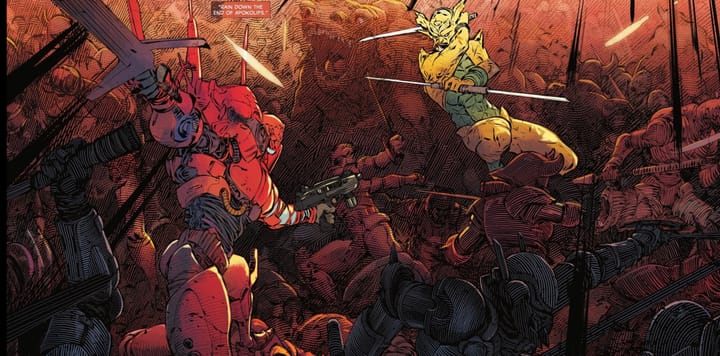
Comments ()